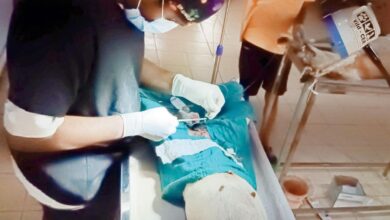Pune reports sixth suspected GBS death amid water contamination concerns

The number of suspected fatalities linked to Guillain-Barré Syndrome (GBS) in Maharashtra`s Pune district has climbed to six following the death of a 63-year-old man, a health official confirmed on Thursday.
According to PTI reports, the deceased was admitted to a hospital in the Sinhgad Road area after experiencing fever, loose motions, and weakness in his lower limbs. He was subsequently diagnosed with GBS. Despite medical intervention, his condition deteriorated, and he succumbed to an acute ischemic stroke on Wednesday, a Pune Municipal Corporation (PMC) health official stated.
The official further clarified that, among the six fatalities, five are classified as suspected GBS-related deaths, while one has been confirmed as directly caused by the rare nerve disorder.
Rise in suspected GBS cases
As per PTI, the Maharashtra health department reported three new suspected GBS cases in Pune, bringing the total number of suspected cases to 173. Out of these, 140 individuals have been diagnosed with GBS.
According to the official release, the distribution of cases is as follows:
34 patients are from areas under the Pune Municipal Corporation (PMC) limits.
87 cases originate from newly added villages in the PMC jurisdiction.
22 cases have been reported from the Pimpri-Chinchwad municipal limits.
22 patients hail from rural parts of Pune district.
8 cases have been detected in individuals from other districts.
The health department’s report further revealed that of the 173 affected individuals:
72 patients have been discharged.
55 are currently in intensive care units (ICU).
21 require ventilator support.
Water contamination linked to outbreak
A senior health official from the Rapid Response Team (RRT), which is investigating the outbreak within a 5-kilometre radius of Nanded village in the Sinhgad Road area, has confirmed a crucial development, as per PTI reports.
A tap water sample from a housing society in Nanded village, where the highest number of GBS cases have been recorded, tested positive for Campylobacter jejuni, a bacterial pathogen known to cause gastroenteritis and potentially trigger GBS.
The National Institute of Virology (NIV) has corroborated findings that the outbreak in Nanded and its surrounding areas was caused by water contamination, specifically due to the presence of waterborne Campylobacter jejuni, according to a PMC official.
In response to these findings, the PMC has sealed 11 private reverse osmosis (RO) plants in Nanded and nearby localities, as water samples from these sources were deemed unfit for human consumption. This action brings the total number of RO plants sealed by the civic body’s water supply department to 30.
Nandkishor Jagtap, head of PMC’s water department, announced that standard operating procedures (SOPs) would soon be issued for private RO plants, water tanker operators, and borewell owners supplying drinking water. “They will be required to use bleaching solutions to ensure the supply of clean and uncontaminated water,” Jagtap stated.
Understanding Guillain-Barré Syndrome (GBS)
GBS is a rare but serious autoimmune condition in which the body`s immune system mistakenly attacks the peripheral nerves. Symptoms include muscle weakness, loss of sensation in the limbs, and difficulty swallowing or breathing. Severe cases may lead to near-total paralysis.
As per PTI reports, GBS is more common in adults and men, but individuals of all ages can be affected. The ongoing investigation into the outbreak aims to prevent further cases and ensure safe water supply measures in the affected regions.
Source link





